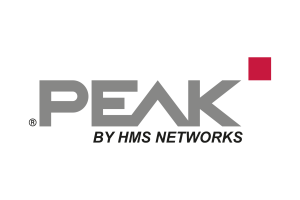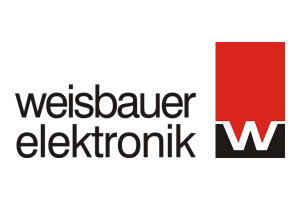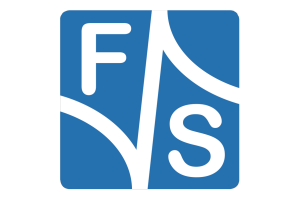Tokyo, we have a Problem!
Renesas loses money not only because of China business
The quarterly reports of the major semiconductor suppliers are,without exception, mixed: With a few exceptions,sales declined at the end of June, almost in all cases primarily due to the decline in business in China. However, the Japanese manufacturer Renesas has a different and much bigger problem.
The dependencies of the global chip industry on the Chinese market are not new. The German champion Infineon alone generates a quarter of its worldwide turnover in China, significantly more than in Germany and almost as much as in the whole of Europe. The fact that difficult market conditions currently prevail in China is also not a new finding. The trade war with the USA and declining growth, especially in the automotive industry, are putting the brakes on business.
While Infineon, thanks to its outstanding role in power electronics, was able to grow compared to the previous year despite these difficult conditions, one side of the coin is that competitors such as ST Microelectronics suffered severe setbacks, particularly in the microcontroller sector.
The Japanese chip manufacturer Renesas can look back not only on a disastrous quarter, but also on such a half-year. Compared to 2018, sales fell by 11.8 %, which is even more serious - a loss of 1.2 billion yen in the quarter and 3 billion yen (27 million euros) in the past six months - and a profit of 56 billion yen in 2018. Only liabilities increased, from Yen 454 million to over Yen 1 billion. For the end of September, a loss of between 6 and 7.4 million yen is expected for the first 9 months of the financial year.
Particularly alarming is the fact that the decline in sales in the first half of the year will affect all three strategically important business areas: In the Automotive business, a decline of 10.92 % was recorded compared with the same period of the previous year, in the Industrial business by as much as 31.14 % and in the so-called "broad-based" business by 22.92 % i.g. for general-purpose MCUs and general-purpose analog chips.
Renesas's basic problem, which has been identified in recent years but has not yet been sufficiently solved, is its continuing dependence on the Japanese domestic market. In the first half of 2019, 37.4 % of total sales were generated in Japan, followed by China with 21 %, Europe as a whole with 17.1 % and America with 9.2 %. The remainder is generated in other Asian countries outside China.
Looking at the first half of 2019, the first quarter in particular was more than difficult and marked by declines in sales in all regions. This was not a pure Renesas problem, but an industrial problem. In the second quarter of 2019, however, all markets more or less began to recover, i.e. the decline changed into stagnation or even, as in the case of China, into renewed growth.
The only exception was Japan. An 18.2 % decline in sales added to the decline in Q1 2019. The decline in Japan alone was greater than in all other world regions combined. If you, like Infineon, only have a 7% share of sales in Japan, the weak market there naturally affects you much less than if you generate more than a third there, as in the case of Renesas.
The Japanese car manufacturers Toyota, Honda and Nissan, which traditionally have a high share of sales in the USA, are suffering greatly from the trade war between the USA and China as well as from the strong yen. Nissan and Ford have already announced that they will cut jobs and close factories.
New CEO, new luck?
The last CEO, Bunsei Kure, was hired at the time to push internationalisation and reduce Renesas' dependence on the domestic market. Despite the progress that has been made, the Board has obviously lost its patience in the face of economic developments and has taken Kure into temporary retirement. The successor from 1 July 2019 was the former CFO, Hidetoshi Shibata, and no one with technical expertise was appointed. Shibata-San worked for various investment companies, including Renesas' shareholder "Innovation Network of Japan" and Merill Lynch. Later, as CFO of Renesas, he was of course instrumental in the "downsizing" of the company after the merger with NEC.
The assignment for the number guru and young manager - Shibata-San, at only 46 years of age, is a true youngster for a Japanese CEO - should be clear: to lead Renesas back to profitability through whatever measures. In view of the market situation, it should be clear that the quote from german singer Xavier Naidoo in the Renesas case should not be wrong: "This path will not be easy, this path will be rocky and difficult".
There are two things that Renesas cannot change or influence in the short term: The trade war between China and the USA and its own dependence on the Japanese automotive and, to a lesser extent, industrial business. As a package of measures, Shibata-San will basically have no choice but to take on the role of cost killer. But of course, Renesas' own underutilized semiconductor factories with high fixed costs, which it still operates on a large scale despite outsourcing to the Taiwanese foundry TSMC, have an extremely unfavorable effect.
Already in April Renesas' 6 Fabs had temporarily closed for a short time due to low capacity utilization - on average the front ends 14 days and the back ends 10 days - and laid off 1,000 workers. In August there was another short break with all the disadvantages such as the costly restart of production.
One approach could therefore be further outsourcing and the sale or closure of factories, another, as so often happens, further job cuts. However, I lack the imagination to imagine how the company, which had already shrunk from over 40,000 to just under 20,000 employees, could be further reduced without catching up with other disadvantages, especially in the context of the important global expansion.








